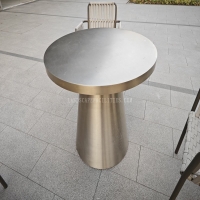Welcome to the website for landscape facilities products and knowledge.
What are the most critical factors influencing the table’s resistance to denting or deformation?
The durability of tables against denting and deformation depends on several crucial factors that determine their structural integrity and longevity. Material selection stands as the primary consideration, with hardwoods like oak and maple offering superior resistance compared to softwoods or engineered materials. The manufacturing process significantly impacts durability, as proper curing, treatment, and finishing techniques enhance the material's inherent strength characteristics.
Construction methodology plays an equally vital role, where joinery techniques such as mortise-and-tenon or dovetail joints provide substantially better load distribution than simple butt joints or staples. The table's structural design, including leg placement, apron configuration, and support beam arrangement, creates a comprehensive load-bearing system that either resists or invites deformation over time.
Environmental factors constitute another critical dimension, as humidity fluctuations and temperature changes cause wood to expand and contract, potentially weakening structural integrity. The thickness and quality of table tops directly correlate with impact resistance, while the type and placement of protective coatings can either enhance or diminish surface durability. Regular maintenance practices, including proper cleaning and protective treatments, further influence how well a table maintains its original form against daily wear and environmental stresses.
Understanding these interconnected factors enables consumers to make informed decisions when selecting tables for specific applications, whether for heavy-duty commercial use or delicate residential settings where both aesthetics and functionality matter equally.
Related search:

Recommendation
Outdoor Metal Table - Classic Outdoor Furniture, Stainless Steel Table, Durable and Reliable